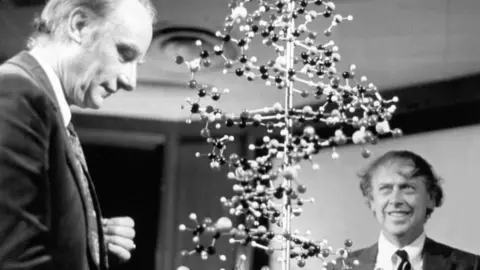Nobel Prize-winning American scientist James Watson, renowned for his co-discovery of the double-helix structure of DNA, has died at age 97. His contributions fundamentally altered the landscape of molecular biology, setting the stage for numerous advancements in genetics.
Watson’s collaboration with British scientist Francis Crick in 1953 led to one of the 20th century's most significant breakthroughs, which they later described as discovering 'the secret of life.' However, his scientific legacy has been complicated by his comments surrounding race and intelligence—statements that have drawn widespread condemnation and led to his gradual fall from grace in the scientific community.
His death was confirmed by Cold Spring Harbor Laboratory, where he had a long-standing affiliation, until eventually resigning as its chancellor following backlash from his controversial views. In 1962, Watson was awarded the Nobel Prize in Physiology or Medicine alongside Maurice Wilkins and Crick for their landmark discovery.
Watson's remarks in the early 2000s, which suggested a link between race and intelligence, ignited a major controversy, distancing him from his peers. After subsequent statements, Cold Spring Harbor Laboratory stripped him of honorary titles, highlighting a dramatic shift in perception towards his work.

Despite his contentious post-Nobel life, Watson made valuable early contributions to science, including nurturing female scientists during an era when their presence in research fields was significantly lesser. His complex legacy remains one of innovation clouded by regretful comments and actions that affected many.






















